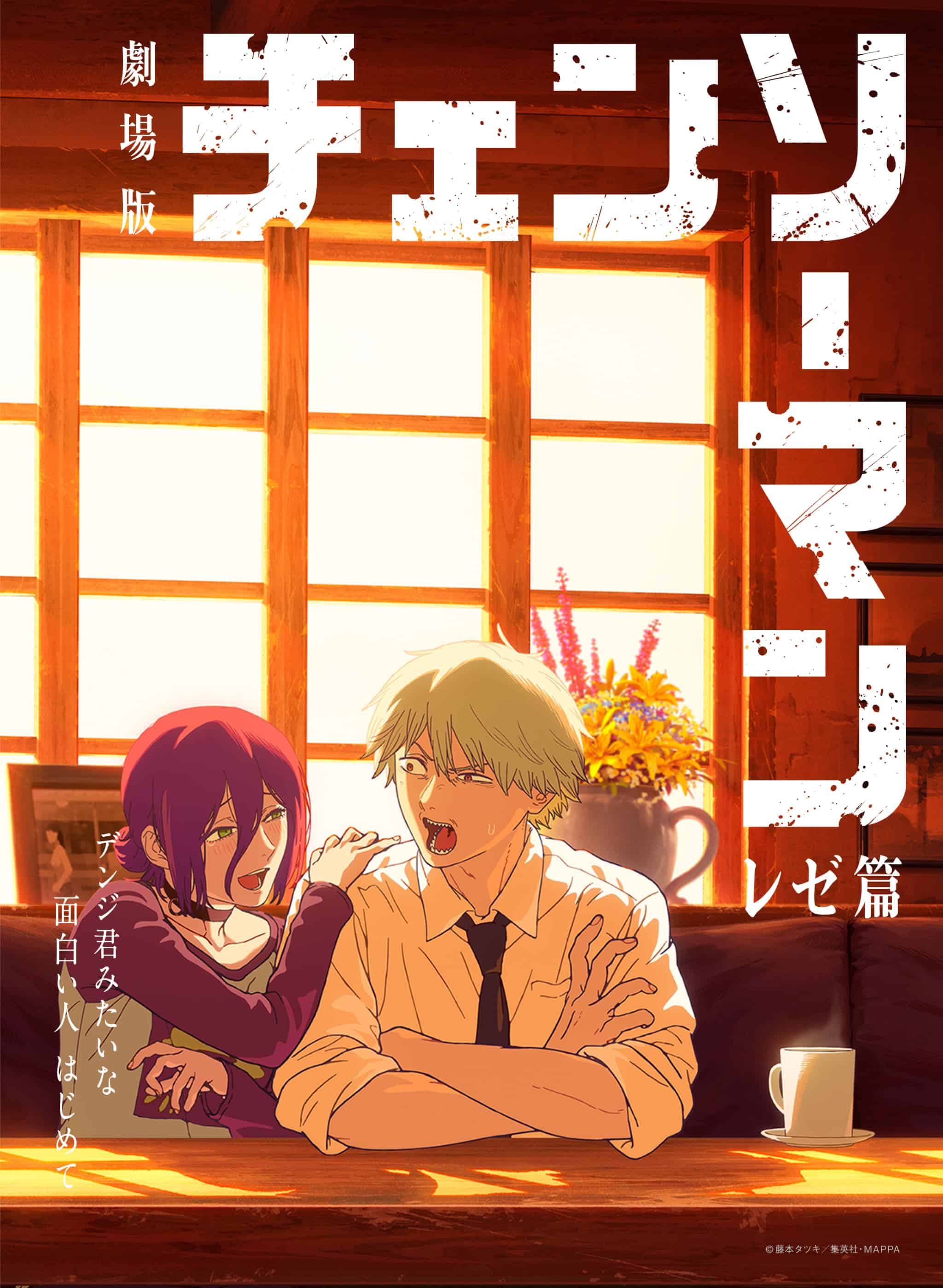Chainsaw Man - The Movie: Reze Arc

Recap
As the hunt for the Gun Devil continues, Denji finds himself distraught between the woman who saved him from rot and a new flame after his heart. When the appearance of the bomb Devil disrupts it all, he finds himself fighting not just for his life, but for all he holds dear about himself.
Review
This year has been a landmark for theatrically released anime. With Demon Slayer still dominating the box office conversation, every film following in its wake has faced a daunting question: is this new wave of success a celebration of the medium itself, or simply the popularity of specific franchises? If Chainsaw Man – The Movie: Reze Arc is any indication, it seems this format for major anime storytelling is here to stay. As heartbreaking as it is hair-raising, the film sets a new bar not just for animated blockbusters, but for cinematic storytelling as a whole.
That may sound like an overstatement about a movie that, on the surface, appears to be another entry in the demon-slaying action trend that has defined the sh?nen genre over the last decade. Yet from the very first season of the series—and reaffirmed here—the story of Chainsaw Man has always been about something far deeper than spectacle. The Reze Arc explores the objectification of youth, the abuse of innocence, and the search for self-worth in a world that insists on defining it for you. It’s the humanity at the core of Denji’s journey that gives the film’s late-stage chaos its emotional weight, and that same presence renders the quieter moments achingly cold.
The first half of the film unfolds like a delicate dance between a coming-of-age romance and a horror story, drawing the viewer in with tenderness and tension in equal measure. Reze serves as a dark mirror to the kind of impersonal objectification Denji has unknowingly been shackled by his entire life. A grunt for the Yakuza. An agent for the Devil Hunters. Every woman he’s connected with has viewed him through a transactional lens, because that’s all they’ve ever known. His simplicity—often mistaken for naivety—reveals how little he’s ever been allowed to have as a human being. The film offers quietly devastating commentary on how poverty fractures our ability to connect with one another, made all the more moving by the genuine warmth of Denji and Reze’s bond. The time spent in this opening act may feel slow, but it’s essential in grounding the deeply personal stakes Denji faces as he finally finds someone willing to care for him—not as a tool or a weapon, but as a person.
As the film descends into its second half, the animation reaches a point of impossibility—so fluid, so inspired, it borders on surreal. Once the Bomb Devil enters the fray, the film erupts with unrelenting tension, carrying the audience’s heartbreak straight through to its bitter end. What follows is a wash of adrenaline and melancholy, punctuated by some of the most stunning action set pieces ever committed to IMAX. The team’s masterful use of color, along with subtle visual callbacks to both the series’ history and to cinema itself, creates a vibrant, sustained high that few films—animated or otherwise—can match. There is so much more I wish I could say, but so much of what makes this experience so powerful is wrapped up in character spoilers that you’ll just have to give it a shot yourself.
Interwoven with Denji’s central conflict is a quietly brilliant side story following Akki as he confronts his own mortality while forming an unlikely bond with the Angel Devil, a being who wishes only for death. Their relationship serves as a poignant counterpoint to Denji’s journey—a restrained, introspective reflection on the same themes of connection, loss, and the fragility of being human. It’s this parallel storytelling that reinforces the film’s emotional thesis: that our capacity for empathy, even in the face of inevitable suffering, is what defines us most.
This exhilaration exists precisely because of how seamlessly every element of the film collides and cooperates. The interplay between a raw, deeply human script and a visual language detailed down to the very last raindrop is executed with extraordinary care. The result is a film that feels at once intimate and grand, savage and tender—a testament to what animation, at its most ambitious, can truly be.
Final Thoughts
Chainsaw Man - The Movie: Reze Arc is simply one of the best films of its ilk, a deeply human tale of heart and horror that will leave you breathless. MAPPA continues to out perform themselves time and time again, elevating what already was a masterpiece into heights thought unachievable.
Chainsaw Man – The Movie: Reze Arc – Bladed Hearts
- Writing - 10/1010/10
- Storyline - 10/1010/10
- Acting - 10/1010/10
- Music - 10/1010/10
- Production - 10/1010/10





